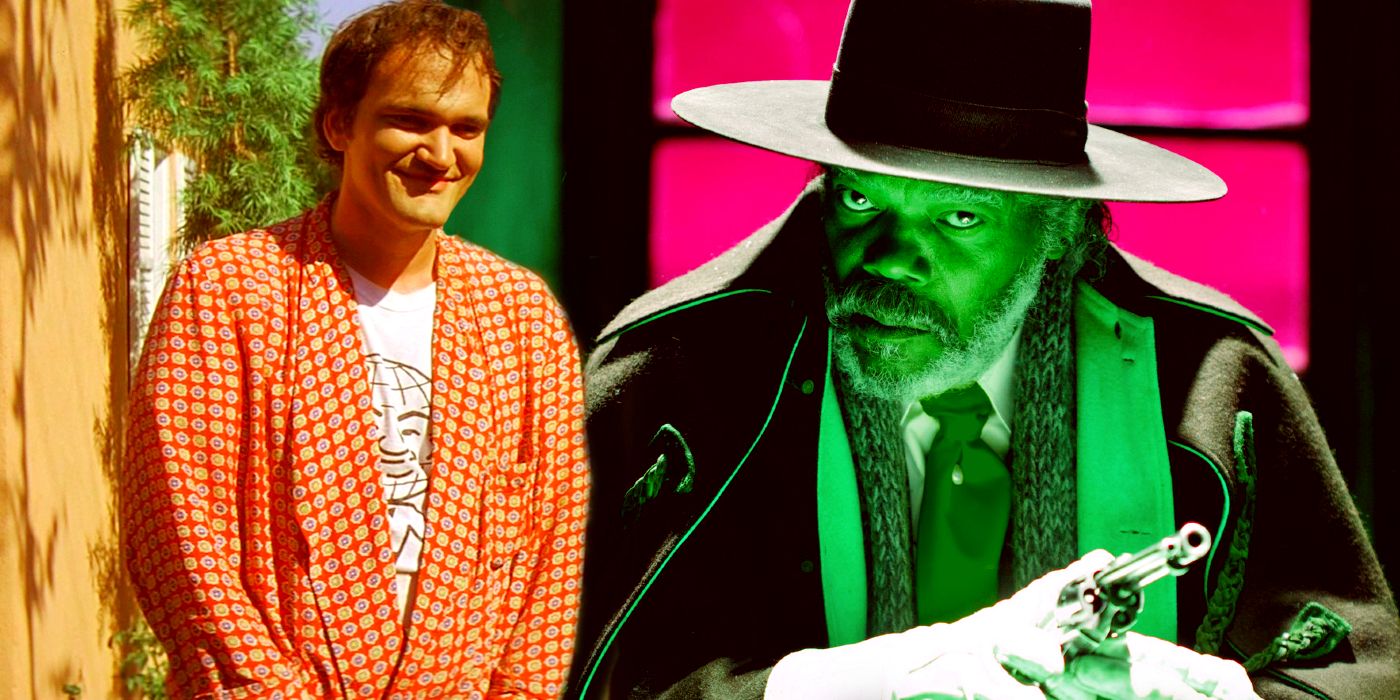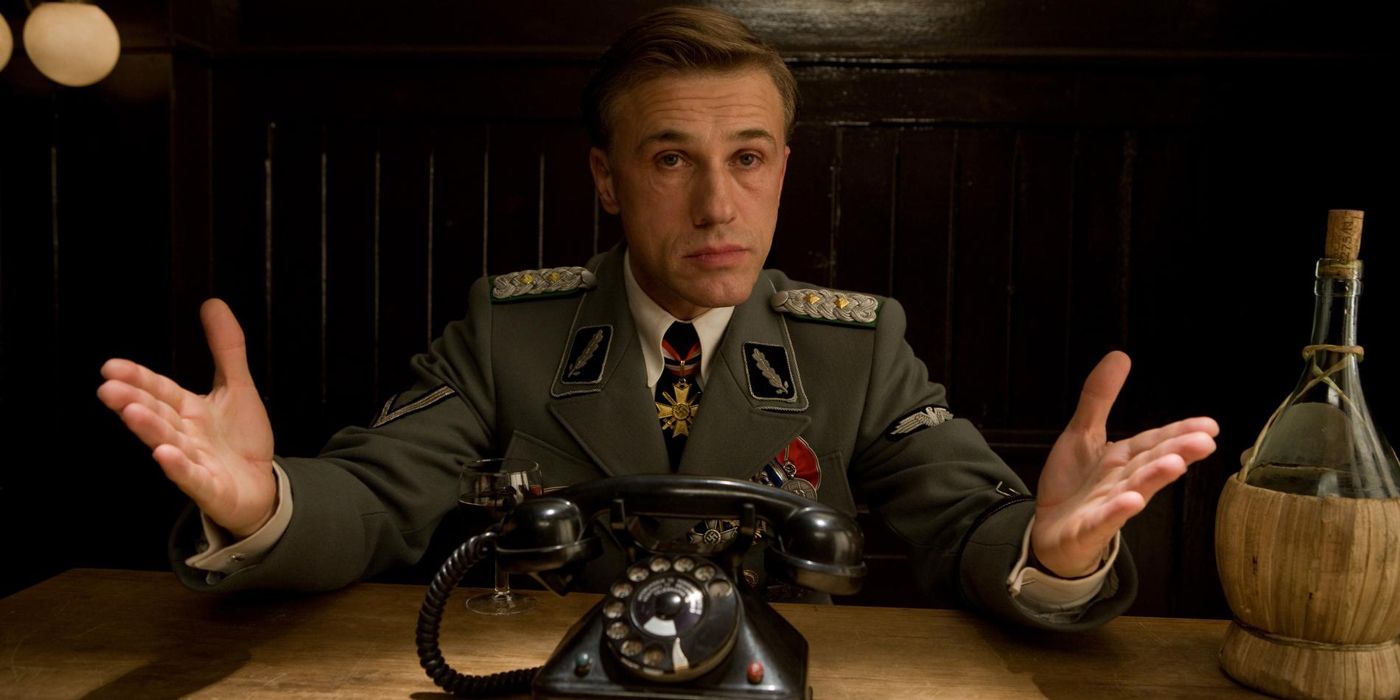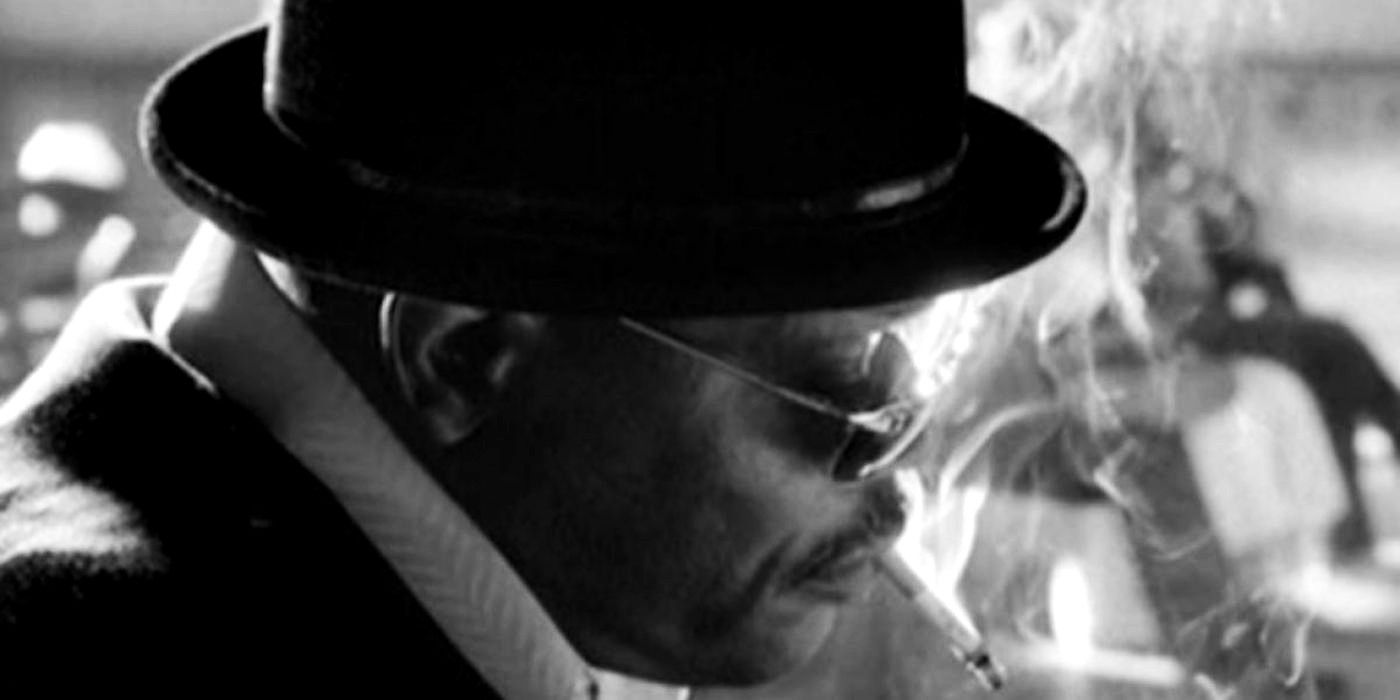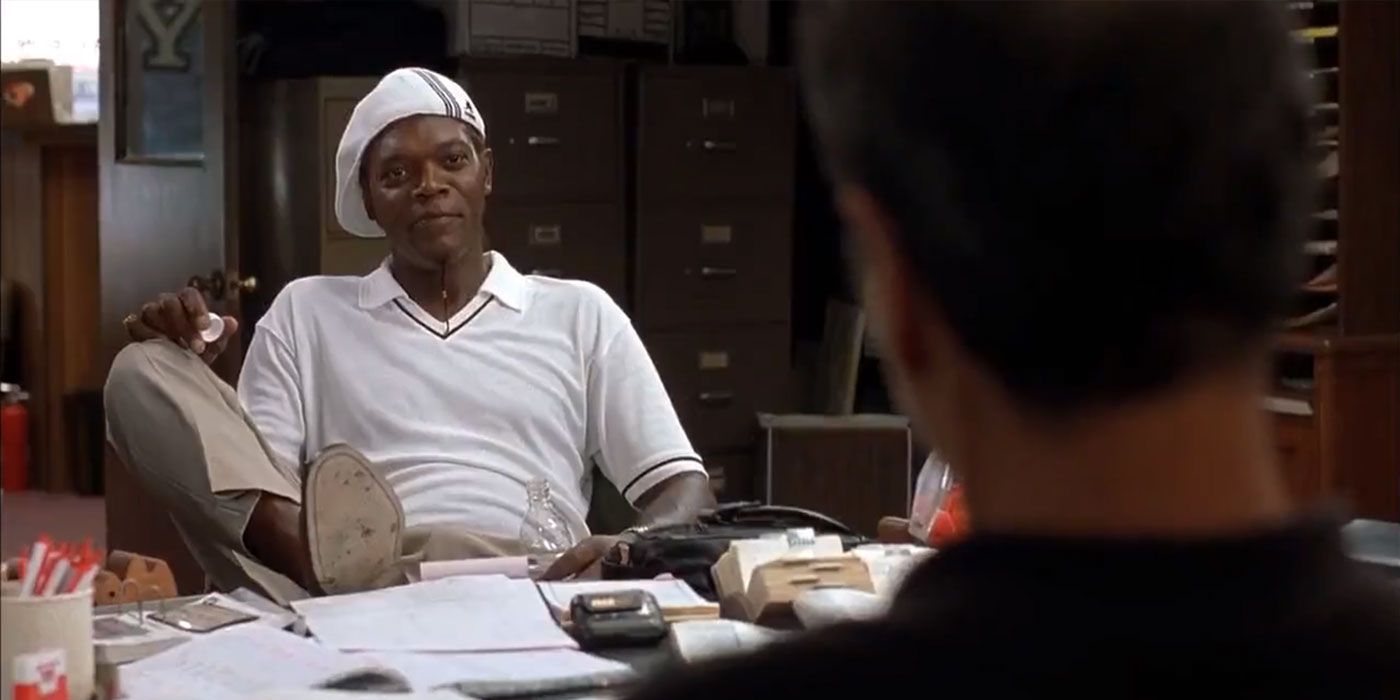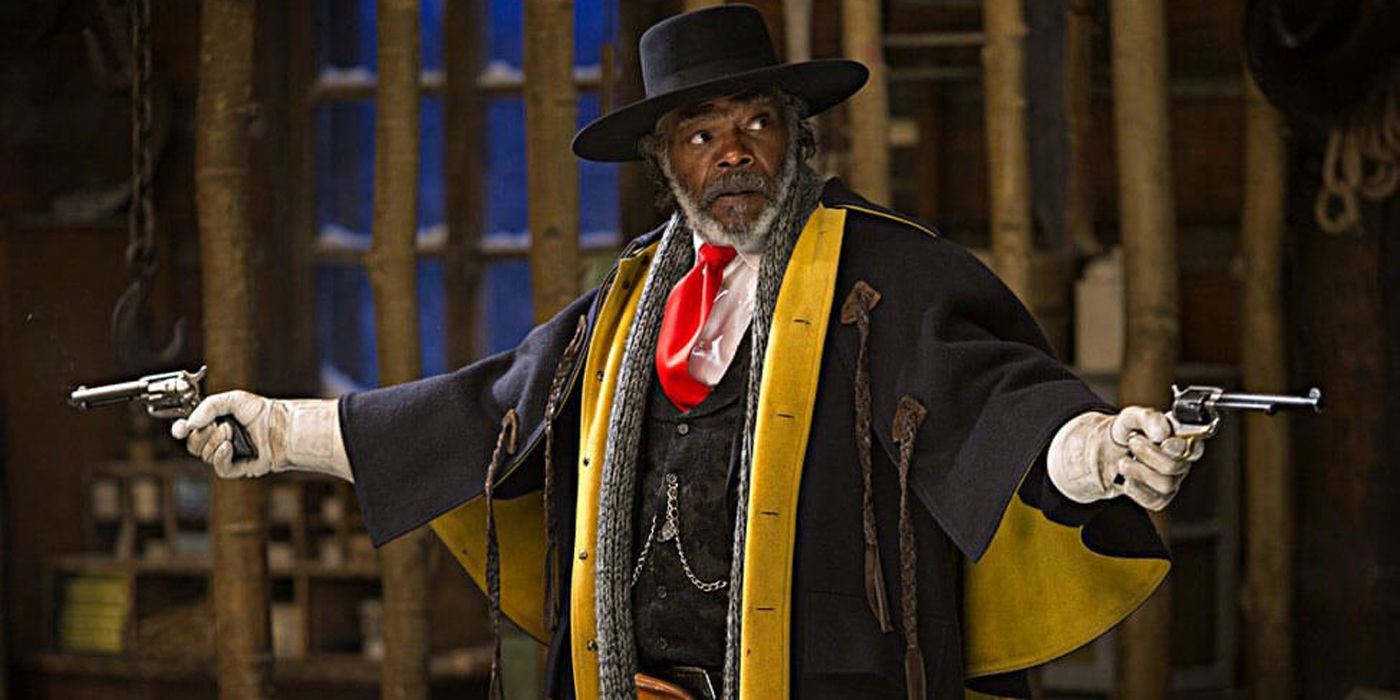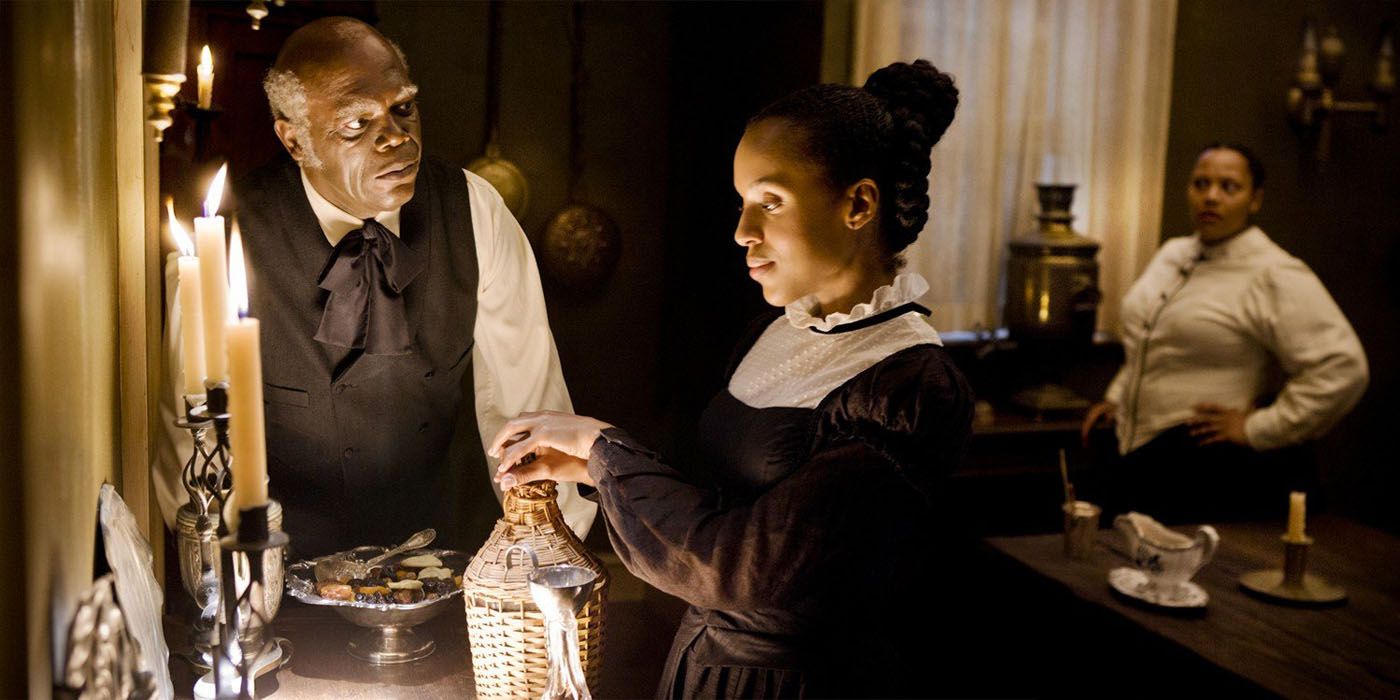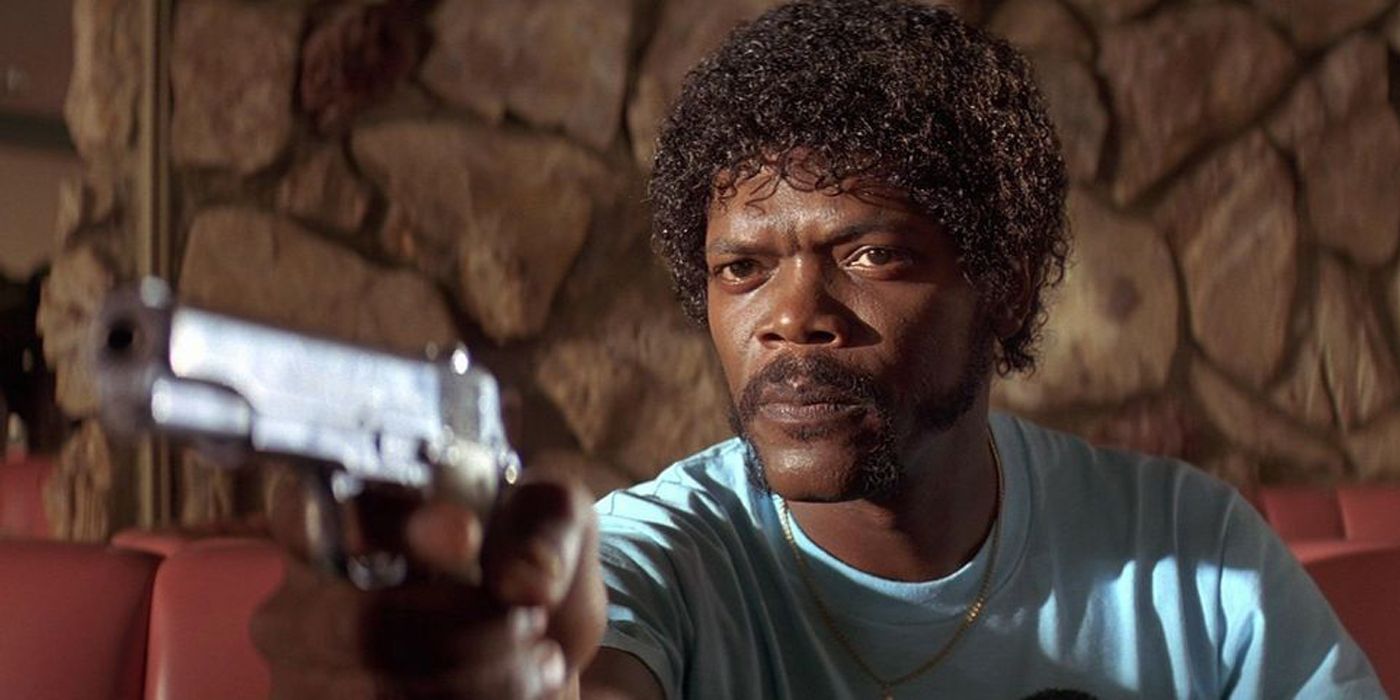Prolific actor Samuel L. Jackson and auteur writer/director Quentin Tarantino have made many unconventional and successful films together, making ranking the movies they've made from worst to best quite a challenge. The two have worked together since Tarantino's cult hit Pulp Fiction and it seems like the pair have enjoyed their illustrious partnership. While Samuel L. Jackson wasn't in Tarantino's latest movie, Once Upon A Time In Hollywood, the actor and director have made a whopping six films together. It's easy to see why the two work well together; Jackson's dominating screen presence fits in perfectly with Tarantino's offbeat storytelling style. As well, Jackson injects some much-needed humor into the director's films, without which many would be far too unsettling.
Quentin Tarantino's movies are inspired by a wide variety of other directors, actors, and genres such as Stanley Kubrick, Alfred Hitchcock, Bruce Lee, spaghetti westerns, and crime dramas. The most interesting thing about his films is that there's a mix of multiple styles and techniques, but the end result still somehow works incredibly well. The writer/director began his extensive career as an independent filmmaker and quickly rose to critical success because of his 1992 crime/drama Reservoir Dogs. Considered one of the most widely recognized actors of this generation, Samuel L. Jackson got his start playing smaller roles in some of Spike Lee's movies. As of now, the actor has appeared in over 150 films in addition to his regular collaborations with Quentin Tarantino.
The six films Samuel L. Jackson and Tarantino have made together encompass multiple genres and role requirements. For movies like Kill Bill Vol. 2 and Inglourious Basterds, Jackson took on smaller parts as a piano player and the narrator, respectively. Conversely, in Pulp Fiction and The Hateful Eight, he played the titular protagonist roles of Jules Winnfield and Major Marquis Warren. He proves his chops as a formidable villain in Tarantino's blaxploitation homage Jackie Brown, as well as the complex antagonist Stephen Warren in Django Unchained. Each of these movies is injected with Tarantino's unorthodox sensibilities and Jackson's incredible range. As a filmmaker, Tarantino has enjoyed critical acclaim throughout his career, making a definitive ranking difficult to do. Therefore, based both on the quality of the films themselves and Samuel L. Jackson's role within them, here is every movie Quentin Tarantino and Samuel L. Jackson have made together ranked from worst to best.
Inglourious Basterds (2009)
Tarantino and Samuel L. Jackson take on World War II in Inglourious Basterds. The film follows Allied officer Lt. Aldo Raine (Brad Pitt) as he leads a group of Jewish soldiers on a mission of vengeance against the Nazis. It's one of Tarantino's most unrestrained films in terms of language and violence, bordering on violence for violence's sake. The incomparable Christoph Waltz plays a terrifying Hans Landa that is somehow both charming and vile. Samuel L. Jackson takes on a smaller role in the film as the omniscient narrator, guiding viewers through the carnage in the story of Hugo Stiglitz. The problem with Inglourious Basterds is that Samuel L. Jackson is hardly in it. He only narrates one scene, making him the only non-character narration. The scene seems out of place with the rest of the movie, though it is necessary to the plot. While Inglourious Basterds is a good Tarantino film, it's not a good Samuel L. Jackson movie.
Kill Bill: Vol. 2 (2004)
Tarantino's Kill Bill Vol. 2, has Jackson in the part of Rufus, the organist who was supposed to perform at Beatrix's wedding. Kill Bill Vol. 2 is a continuation of the original movies' story. Beatrix Kiddo (aka "The Bride") resumes her trail of blood by going after Bill, her former lover and head of the Deadly Viper Assassination Squad, for causing a massacre at her wedding rehearsal and shooting her in the head. Both of Tarantino's Kill Bill movies are critically acclaimed and high-action successes. Though Jackson's role is small in the film, it was a smarter choice than introducing a new character just for him. It's a prime example of the adage "there's no such thing as a small part" because without Jackson the character of Rufus would've been lost on a different actor. He still gives a memorable performance in Kill Bill Vol. 2 with only a few lines to work with. After all, "Rufus, he's the man." The only reason this movie isn't higher on the list is Samuel L. Jackson's short appearance and the sequel's subtler tone compared to the first film.
Jackie Brown (1997)
Any fans of the blaxploitation genre should see Jackie Brown. Samuel L. Jackson does a great job using a sinister subtlety as the villain and gunrunner Ordell Robbie, surprisingly taking on the part with a more subtle approach than what audiences are used to seeing from the actor. While the movie is a testament to Jackson's range and skill, the film itself has some issues. At times Jackie Brown feels too sluggish, which impairs an otherwise compelling story. Jackie Brown isn't technically a part of the Tarantino movie universe, but Ordell's character fits right in. His dialogue is characteristically witty, but it doesn't translate as well as some of Jackson's other films; though this may be an issue with the script rather than the actor. At times it seems like Samuel L. Jackson is fighting to keep his place on the screen. Other actors in the film like Michael Keaton and Robert Forster steal the spotlight, which is uncommon for the actor.
The Hateful Eight (2015)
Samuel L. Jackson does an incredible job as the hardened civil war vet, but the problem with The Hateful Eight is that it's a story that lacks determinable meaning. While it features a knock-out ensemble cast playing complex characters it seems much more like a star vehicle than a movie with purpose. Tarantino forgoes his usual shootout ending for single deaths throughout the film, which might not have been to his advantage considering The Hateful Eight's original ending was bloodier. That being said, Samuel L. Jackson's performance as Major Marquis Warren is why this film is higher on the list. His compelling character is what leads audiences through the mire of the story all the way to its ending. He approaches Marquis with a wizened intensity that pushes the film forward and allows Jackson to use his undeniable range.
Django Unchained (2012)
Tarantino's western liberation film is something the genre hasn't seen before. The ruthless romantic epic combines tense gunfights, thrilling action sequences, and incredibly memorable performances from the star-studded cast. Django Unchained dives into a lot of cultural and racial issues, chronicling the U.S.'s tumultuous history of oppression while including some true horrors of the time, such as the brutal treatment of slaves. Though Django Unchained isn't based on a true story, there's no doubt that characters like Django, Stephen, or Calvin existed. Samuel L. Jackson explores an interesting role in Stephen. He channels some of his previous villainous subtlety used in Jackie Brown, but his presence is somehow even more menacing in Django. Instead of being on the side of Django and Broomhilda, he takes sides with his master Calvin, which Jackson believably plays with soul-crushing apathy and spite. Stephen is an extremely complex character when it comes to his views on society and race and Jackson tackles the antagonist with full force.
Pulp Fiction (1994)
Pulp Fiction is the best film that Samuel L. Jackson and Quentin Tarantino have made together. Jackson plays a hitman named Jules performing dirty deeds with his partner Vincent (John Travolta). The actor brings his trademark intensity to a new level in the character of Jules. In Tarantino's neo-noir Pulp Fiction, Jules' arc is by far the most interesting out of all the characters. He begins questioning where he is in life and how he got there. It's a far cry from his actions during the film, such as quoting a fictional bible verse while holding a gun to a man's head. However, the film makes a smart decision in Jules' existential crisis. The turn brings a weird sense of believability to an unbelievable person. This sort of changeup only works with an actor who can bring brutal honesty to the screen. When Jules puts away his gun for good, audiences believe him.
Another reason that Pulp Fiction is the best is that it started a new era in filmmaking and paved the way for a lot of independent filmmakers. Its punchy dialogue and darkly comedic style was something no one had encountered on the screen before, raising the film to cult classic status. There's no doubt that incredible writer/director Quentin Tarantino and the wildly talented Samuel L. Jackson will make more splashy, bloody, fun movies.

